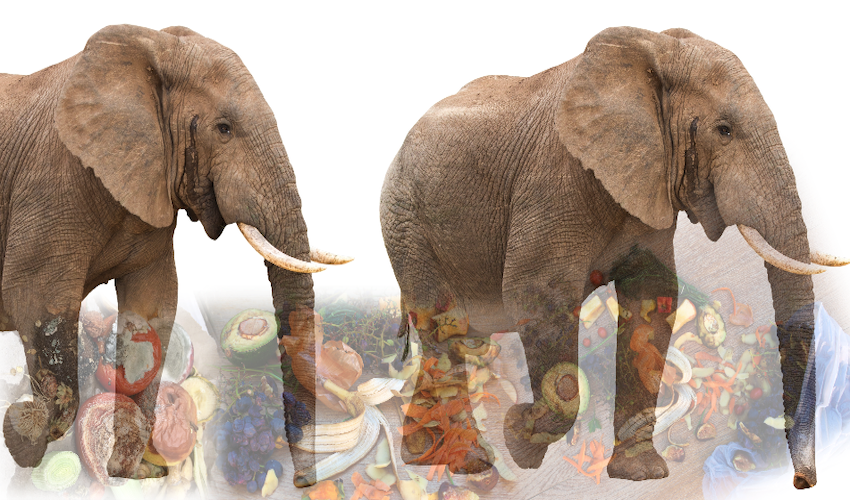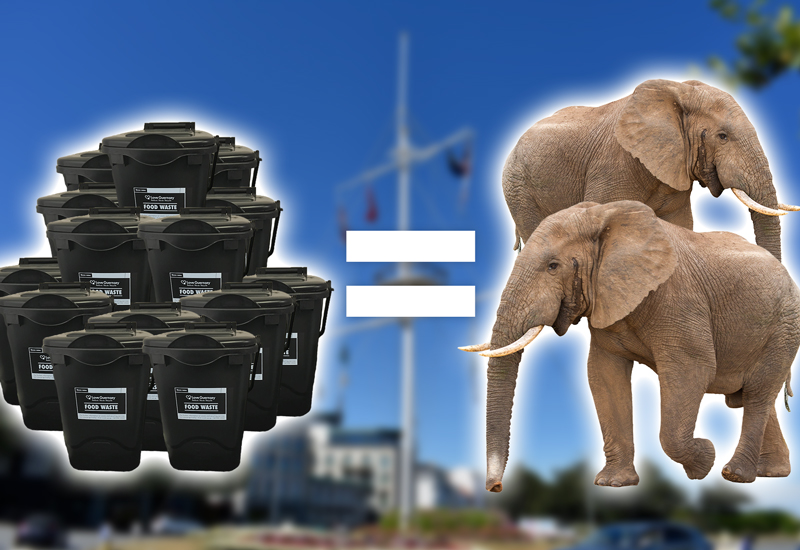


The amount of food waste being discarded in Guernsey is slowly falling, but it still stands at around 64 tonnes each week in Guernsey - equivalent to 1.8 African elephants in weight.
There are hopes this amount will reduce even further after Guernsey Waste aligned itself with Food Waste Action Week to raise awareness of the issue.
The national Food Waste Action Week ran from 18 to 24 March with advice and guidance shared to reduce the cost and impact of local food waste.
The UK's campaign was aiming to raise awareness of the huge impact of household food waste on climate change, with Guernsey Waste saying that cutting down on avoidable food waste is one of the single biggest contributions the island can make towards reducing carbon emissions. It would also potentially save each household hundreds of pounds at the same time.
Guernsey Waste Minimisation & Sustainability Officer Douglas Button said there is lots of advice and handy tips for reducing food waste at lovefoodhatewaste.gg and by following Guernsey Waste on social media @Recycleforgsy.
He said their tips can save you hundreds of pounds each year.
“For the average family with children, the cost of binning food can be more than £900 per year. So, Food Waste Action Week is all about avoiding food waste by choosing what you’ll use, or freezing and preserving what you haven’t used.
“In 2022, we collected nearly 3,400 tonnes of food waste, just from households, and it is not all eggshells and vegetable peelings. Most of it was perfectly good, had it been eaten in time, or if the right amount had been cooked. And islanders can see for themselves how much is going in their food waste and how much it is costing them.
“Choosing exactly what you’ll use is a big factor when preventing food from going to waste at home. At a time of rising food prices alongside huge public concern about climate change, tackling food waste at home is one way we can all make a difference while also saving ourselves money.”
The amount of food waste collected from Guernsey households each day is equivalent in weight to just under two elephants, and Guernsey Waste estimates this collectively costs householders more than £10 million a year.
Nationally, the UK Waste & Resources Action Programme (WRAP) estimates the cost of household food and drink waste in the UK (c27.8 million households) is more than £17 billion a year. The equivalent comparison for Guernsey (c27,500 households) would be around £17 million.
The main reasons given for the wasted food are that it was not eaten in time, or too much was cooked.
The weight of an African elephant varies between 2.5 and 7 tonnes, giving an average 4.75 tonnes.

Pictured: In 2019, Guernsey households were throwing away the equivalent of two elephants in food waste every week.
In Guernsey, in 2022, 3,349 tonnes of separate food waste was collected from households, equivalent to 64 tonnes per week, or 12 tonnes per night (five nights a week collection). When averaged out over seven days, this is equivalent to 1.8 average elephants.
In December 2020, Express reported that 4,000 tonnes of food waste was being discarded - giving a weekly average of just under 77 tonnes.
In 2019, the amount of food waste collected was reported to be equivalent to two elephants in weight.
In 2014, it was reported that just over 86 tonnes of food waste was being collected weekly.
Households throw £10m in the food waste bin every year
'Food is Not Rubbish' campaign launched
Comments
Comments on this story express the views of the commentator only, not Bailiwick Publishing. We are unable to guarantee the accuracy of any of those comments.